I inherited QQuickWindow and created a frame-less window that can be moved by drag. Inside my window I put a Slider element. The problem is that the Slider forwards the events to the parent window and when I try to change the value on the slider, the window moves along. Here's how it behaves:
Is there a possibility to make the slider accept the mouse events and not forward them to the window?
Here's my code:
main.cpp
#include <QGuiApplication>
#include <QQmlApplicationEngine>
#include <QUrl>
#include "mywindow.h"
int main(int argc, char *argv[])
{
QGuiApplication app(argc, argv);
qmlRegisterType<MyWindow>("mycustomlib", 1, 0, "MyWindow");
QQmlApplicationEngine engine;
engine.load(QUrl(QStringLiteral("qrc:/main.qml")));
return app.exec();
}
main.qml
import QtQuick 2.7
import QtQuick.Window 2.2
import QtQuick.Controls 1.4
import mycustomlib 1.0
MyWindow {
width: 300
height: 180
visible: true
x: 250
y: 250
color: "beige"
Slider {
anchors.fill: parent
value: 0.5
}
}
mywindow.h
#ifndef MYWINDOW_H
#define MYWINDOW_H
#include <QQuickWindow>
class MyWindow : public QQuickWindow
{
Q_OBJECT
public:
MyWindow(QWindow *pParent = Q_NULLPTR);
protected:
virtual void mouseMoveEvent(QMouseEvent *e) Q_DECL_OVERRIDE;
virtual void mousePressEvent(QMouseEvent *e) Q_DECL_OVERRIDE;
virtual void mouseReleaseEvent(QMouseEvent* e) Q_DECL_OVERRIDE;
private:
bool m_move;
QPoint m_initialMouseClickPos;
};
#endif // MYWINDOW_H
mywindow.cpp
#include "mywindow.h"
#include <QDebug>
#include <QCursor>
MyWindow::MyWindow(QWindow *pParent) :
QQuickWindow(pParent),
m_move(false)
{
setFlags(Qt::FramelessWindowHint);
}
void MyWindow::mouseMoveEvent(QMouseEvent *e)
{
if (m_move) {
const QPoint newMousePosition = e->pos() - m_initialMouseClickPos + position();
setPosition(newMousePosition);
}
QQuickWindow::mouseMoveEvent(e);
}
void MyWindow::mousePressEvent(QMouseEvent *e)
{
if (e->button() == Qt::LeftButton)
{
m_initialMouseClickPos = e->pos();
m_move = true;
}
QQuickWindow::mousePressEvent(e);
}
void MyWindow::mouseReleaseEvent(QMouseEvent *e)
{
if (e->button() == Qt::LeftButton)
{
m_move = false;
}
QQuickWindow::mouseReleaseEvent(e);
}
